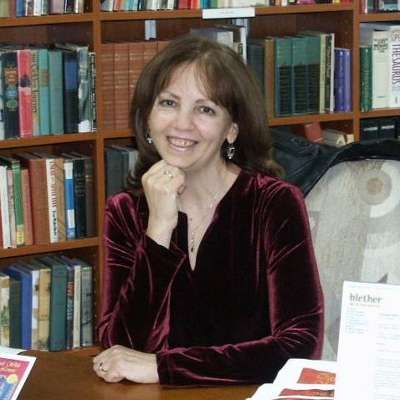Returning stars and high-profile company debuts contributed panache to the energy-charged atmosphere at the west coast première of Jake Heggie and Terrence McNally’s latest collaborative effort, Great Scott. A co-production of the Dallas and San Diego companies, the world première took place at Dallas Opera in October 2015, and depicts a uniquely American ambiance: that of an imperiled big-city opera company in competition for attention and patron funds with the city’s champion football team.
If opera is, according to one anonymous writer, “An art form for sufferers and nut cases,” this tongue-in-cheek representation of an opera-within-an-opera successfully depicts that world’s idiosyncrasies and eccentricities. With Heggie’s melodic deftness and charm and McNally’s brilliant wordsmithing, the story leaps off the stage, nimbly played by an outstanding cast.
Having made her SDO debut in the role of Elizabeth in Maria Stuarda, mezzo Kate Aldrich plays Arden Scott, an opera superstar facing “Now what?” challenges at the height of her career. Aldrich’s lush voice and winning portrayal established her character as the lynchpin of the evening’s spectacle, as she suffers self-doubt, recrimination and revelation. Her rendering of the hugely demanding role was vocally and dramatically strong, and her stage presence was striking.
As Arden’s newly rediscovered love interest Sid Taylor, baritone Nathan Gunn played his character with self-deprecating charm, but it was the full-bodied beauty of his voice that left the most lasting impression.
Frederica von Stade, long an advocate of Heggie’s music, has appeared in two of Heggie and McNally’s artistic partnerships: Dead Man Walking and Three Decembers. Her debut SDO performance as Winnie Flato, devoted opera company patron and Arden Scott’s mentor, positively glowed from within. After many decades as one of opera’s top performers throughout the world, von Stade’s vocal beauty is still intact, and her elocution, whether in English or Italian, is impeccable. Her mere presence on the stage elevated every scene in which she appeared, and the touching portrayal of the tender relationship between her and Aldrich won the audience’s hearts.
Soprano Joyce El-Khoury played Tatyana Bakst, a “Three Faces of Eve” wannabe who predictably steals the show in her over-the-top rendering of a Super Bowl “Star Spangled Banner.” El-Koury’s voice was powerful and penetrating, and her depiction of her shamelessly self-promoting character was disarmingly authentic. Countertenor Anthony Roth Costanzo was vocally impressive and dramatically engaging as Scott’s close chum Roane Heckle.
Michael Mayes charmingly played the Casanova-like Wendell Swann. As angst-ridden tenor Anthony Candolino, Garrett Sorensen’s declaration, “I’m in voice tonight,” was not an exaggeration. He sang powerfully and energetically. Mellifluous-voiced bass-baritone Philip Skinner was well cast as archetypal maestro Eric Gold and the Ghost of Bazzetti, the composer of the opera-within-an-opera that drives the story.
Heggie’s music is always intricate and detailed, but in this work he outdoes himself by juxtaposing the modern musical syntax in the body of the piece with true bel canto style writing in the newly discovered 1800s opera championed by protagonist Arden Scott. This complicated mixture of styles requires added skill from the singers as well as dexterous handling in the pit. Conductor Joseph Mechavich, last seen here helming Nixon in China, provided strong leadership in the complex score.
Jack O’Brien, former director of San Diego’s Old Globe Theatre, proved himself worthy of award-winning veteran director status with his active but not overly busy staging. Despite the characters’ ongoing tribulations and conflicts, O’Brien managed to create an overall atmosphere of joy among the players, eliciting the gamut of facial expressions, from radiant to triumphant to overwrought, heightening the effect of McNally’s witty, double entendre-laced libretto.
Bob Crowley’s sets in vivid shades of blue and turquoise set against a backdrop of volcanic orange and crimson in the opera-within-an-opera, intensified the drama of the Pompeian storyline as well as the high stakes of Arden Scott’s risky enterprise. The intensity of color reinforced the compelling nature of the anxieties related to Scott’s career and love life issues, and especially to the risks she takes in advocating the première of an untested opera.
Brian MacDevitt’s lighting and Elaine J. McCarthy’s handsome projections accentuated the effects of Crowley’s sets. The football-meets-ballet choreography by John de los Santos provided extra interest. MacDevitt, Crowley and de los Santos made their SDO debuts.
Overall the opera felt as if it could benefit from some cuts. But if the ecstatic cheers of last night’s audience were any indication, SDO has a clear winner on its hands.




